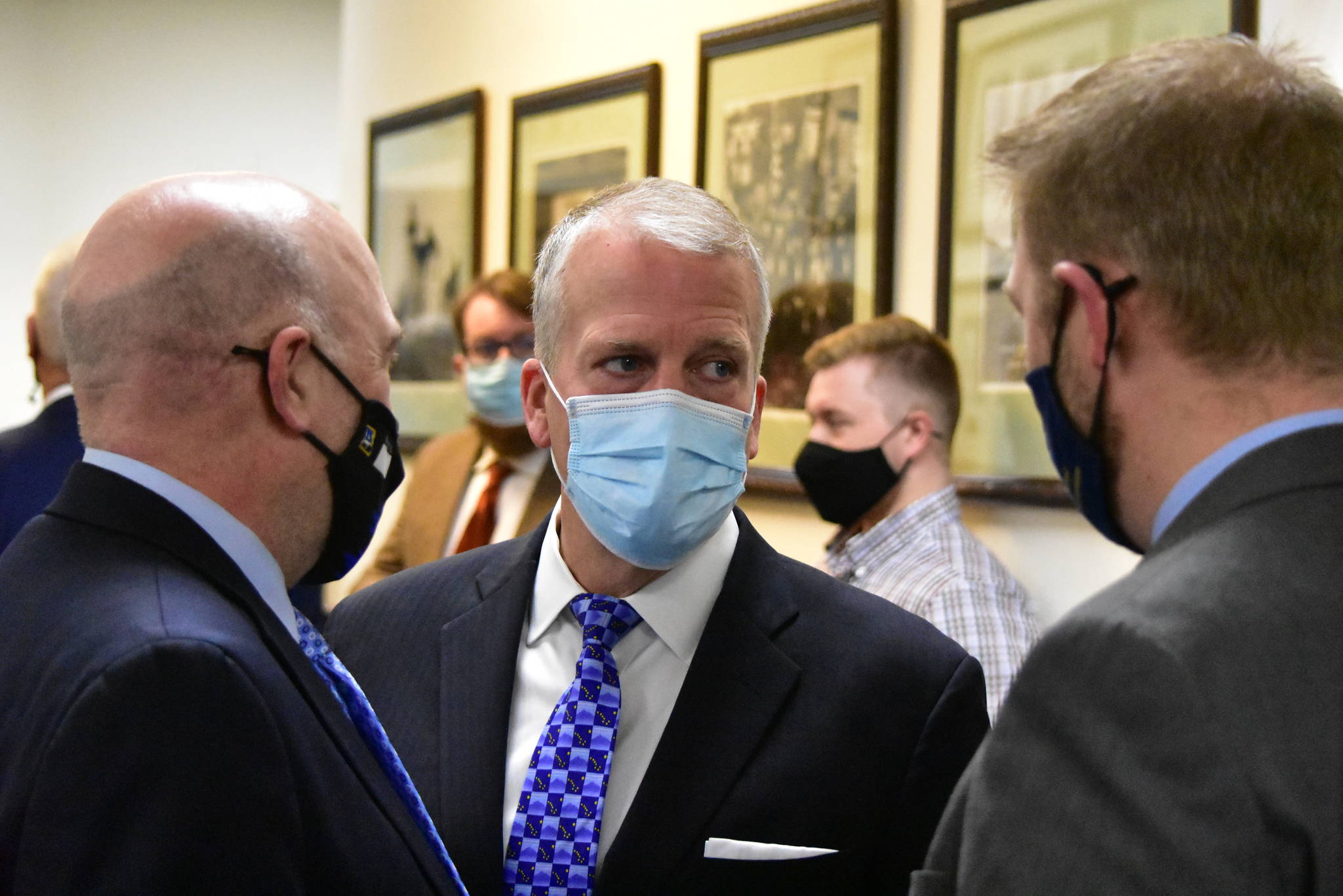On May 26, Sen. Dan Sullivan, R-Alaska, spoke on the Senate floor in defense of free speech on college campuses. Citing a recent Gallup survey, he explained that almost two-thirds of American students feel the climate on campus inhibits their ability to freely express themselves. “It’s dangerous,” he said. “Not just for university life, but for American life, and I believe it’s unacceptable.”
He’s right.
What’s more dangerous and unacceptable though is the significant percentage of elected Republicans in Congress and state houses across the country who don’t feel free to express their true feelings about Donald Trump and his unyielding, evidence-free claims that the election was stolen.
Sullivan is among that timid crowd of lawmakers. He displayed it again by voting against the bill to establish a bipartisan commission to investigate the Jan. 6 insurrection at the Capital.
That was just two days after he spoke in support of the free speech amendment he offered to the proposed U.S. Innovation and Competition Act. That bipartisan sponsored legislation is intended to reestablish U.S. leadership in scientific and technological innovation and counter China’s influence on that front. It will direct tens of billions of dollars to American universities.
Sullivan correctly argued that “censorship, oppression, and one-sided thought are characteristics of communist China, not America, and certainly should not be the characteristics of America’s great universities.” Instead, they must strive to be “laboratories of free expression, free thought, creativity, innovation, and ingenuity.”
“My simple amendment will help make sure this happens,” he concluded. How? By requiring universities that accept federal funding self-attest that they’re actively protecting the First Amendment rights of staff and students.
His amendment was defeated along partisan lines.
Had it passed though, it might not have been any more effective than the Republican Party under Trump certifying its members are free to speak their conscience.
In addition to the stifling of individual expression, Gallup states “there have been First Amendment flashpoints around invited speakers on campus in recent years, with opposition to certain speakers leading colleges to cancel those events.” The American Civil Liberties Union states such actions “deprive students of their right to invite speech they wish to hear, debate speech with which they disagree, and protest speech they find bigoted or offensive.”
The Foundation for Individual Rights in Education has compiled a list of 477 such cases since 1998. Most recently, a Catholic alumni group cited President Joe Biden’s position on abortion as the reason he shouldn’t have been invited to give the 2021 commencement speech at the University of Notre Dame.
In 2014, Washington Post columnist George Will was targeted for disinvitation at three universities because his “controversial column regarding campus sexual assault offended many.”
Today, however, it’s many members of the Republican Party who aren’t open to hearing the views of the legendary conservative thinker.
Will changed his voter’s registration to independent after Republicans made Trump its nominee for president in 2016. The following year he referred Trump as an “intellectual sloth.” Regarding Trump’s impeachment for inciting the Jan. 6 insurrection, Will wrote, “few Republicans are willing to enrage many constituents by voting to convict him for no better reason than that he is obviously guilty as charged.”
Sen. Lisa Murkowski was among the exceptions.
And she fearlessly defended the creation of the Jan. 6 commission.
Not Sullivan. In a written statement, one of the reasons he gave for opposing the commission was that it “risks further dividing Americans at a time when we need to come together.”
Tell that to Trump. He closed out May by working to ensure Americans remain divided. The Democrats’ supposed theft of the election, he said, “will go down as the Crime of the Century!”
Fantasy or not, Trump’s freedom to speak his mind is protected by the First Amendment.
As it should be for Murkowski, Rep. Liz Cheney of Wyoming, and others like them who are uncompromisingly defending the truth. For them, it’s not America’s universities that attempted to inhibit their freedom of expression.
I know Sullivan doesn’t believe Trump’s dangerous lies about the election being stolen. That’s why his best defense of the First Amendment, and American democracy, is a refusal to be silenced by his party and the disgraced former president.
Rich Moniak is a Juneau resident and retired civil engineer with more than 25 years of experience working in the public sector.

